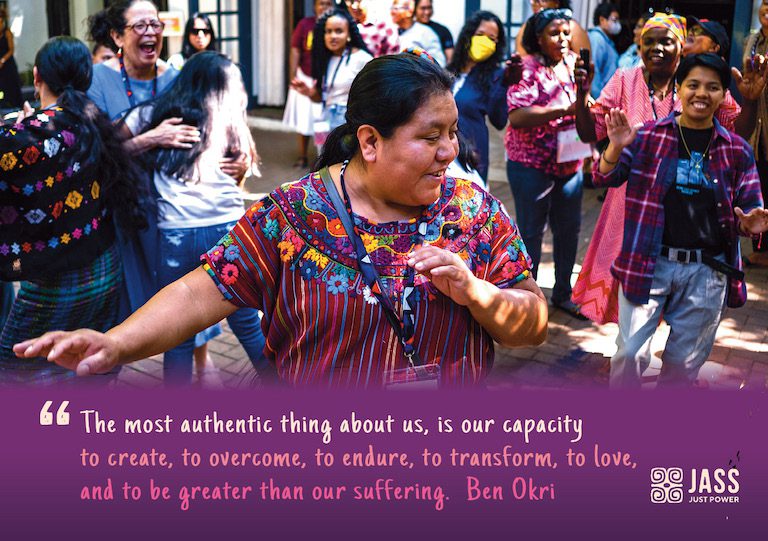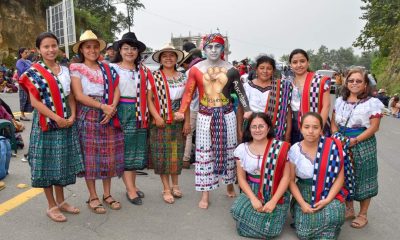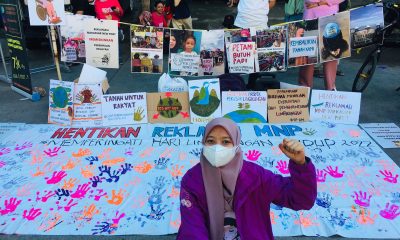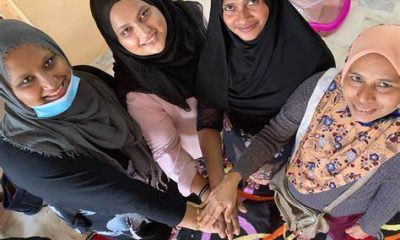By Laura Carlsen Km. 148 is a nodal point on the Interamerican Highway that connects…

Centering Life in Times of Darkness: Lessons from Womxn* on the Frontlines
The times in which we are living present the urgent question: what does it mean to live through destruction and anguish and still retain a sense of humanity and possibility?
Cultivating our joy, our humanness, a connection to each other and this natural world, the earth, enables us to face the pain, to stare down injustice, and to find the strength to carve a different path forward. I am reminded of this each time I engage with the communities of activists JASS accompanies, whose stories of organising show that despite situations of grave crisis and injustice, there is still joy, care, community and the essential refusal to resign ourselves to a death-filled future. Even in the darkest of times, we celebrate life.
Last month, I had the opportunity to be among thirty land defenders from Southern Africa, Mesoamerica, and Southeast Asia. Rural and indigenous womxn, community and movement leaders who are at the forefront of defending their communities’ ancestral lands and territories. The South to South Exchange took the form of a feminist movement builder’s school that provided a powerful space for learning and analysis across contexts and histories of colonisation; for sharing strategies of resistance, forging transnational solidarity, and importantly, affirming land defenders’ rights and knowledge. Amidst this beautiful diversity, womxn found common ground through ritual, community and celebration, demonstrating what it truly means to reclaim imagination, to create possibility faced with structural violence and injustice, and to give birth to newer ways of being. These womxn leaders are not just defending territories, they are defending life!
In September, I had a similarly insightful and rich experience as one of the facilitators for a pilot Feminist Movement Building school on racial justice, a collaboration with the Feminist Centre for Racial Justice based at SOAS, University of London. The school took place over the course of a week with fifteen social movement activists from across Latin America and Mesoamerica who organise at the intersection of feminist, queer, Black, and Indigenous struggles. We cracked open critical conversations on how to deal with anti-Blackness and anti-Indigeneity in the region and its impact on our movements. Together, participating activists laid the foundation for building a transnational vision, forging the bonds of solidarity that this moment is calling for. As one of the participants noted, :
I dream and want to build spaces of deep reflection to organise against colonialism with affection and love. Rage is necessary, but it is necessary for that rage to be accompanied by love.
We are in a liminal period. This is a decisive moment in how we shape our futures, and we’ve got some choices to make. What that looks like for each of us will be different. For me, it’s walking with, among and alongside womxn organisers and their communities, drawing on such valuable lessons and the power of our interconnected struggle and visions that fuel JASS’ work and simultaneously sustain us. I close the year with a recommitment to this work; and a reaffirmation of centering what it is to be human, of the need to dream, to imagine and to create — together.
Join us, as we continue to build on the movement and feminist popular education traditions of JASS that have kept us radical and relevant for over two decades.
Onward,
Shereen Essof
*For JASS, ‘womxn’ includes young womxn, non-binary, intersex, and trans people.




























